How Biden’s inner circle worked to keep signs of aging under wraps
Senior White House advisers for more than a year have aggressively stage-managed President Biden’s schedule, movements and personal interactions, as they sought to minimise signs of how age has taken a toll on the oldest president in US history.
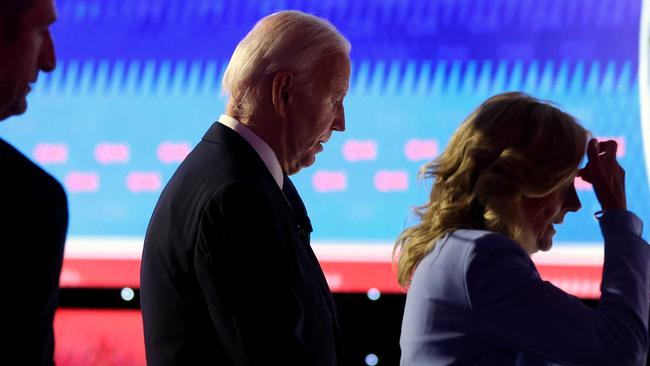
Senior White House advisers for more than a year have aggressively stage-managed President Biden’s schedule, movements and personal interactions, as they sought to minimize signs of how age has taken a toll on the oldest president in U.S. history.
The White House has limited Biden’s daily itinerary and shielded him from impromptu exchanges. Advisers have restricted news conferences and media appearances, twice declining Super Bowl halftime interviews -- an easy way to reach millions of voters -- and sought to make sure meetings with donors stuck to scripted pleasantries.
Senior aides dismissed travel suggestions over worries the president didn’t have the stamina for them, including an idea for Biden to make weekly cross-country trips in 2022 to tout the benefits of his infrastructure law.
All of this unfolded as Biden’s slips became increasingly obvious, and his top advisers were assuring everyone the president was fine.
When the 81-year-old president took the stage at last month’s debate, his abysmal performance in the 90-minute event stunned members of his party, including some White House staffers who rarely spend one-on-one time with Biden.
Now, many donors and lawmakers say they feel misled by what they say is an effort to tamp down concerns, raised well before the debate, about whether Biden is fit for a second term. Some high-ranking Democrats said they worry that few in the party have the courage to tell Biden face-to-face that he needs to step aside.
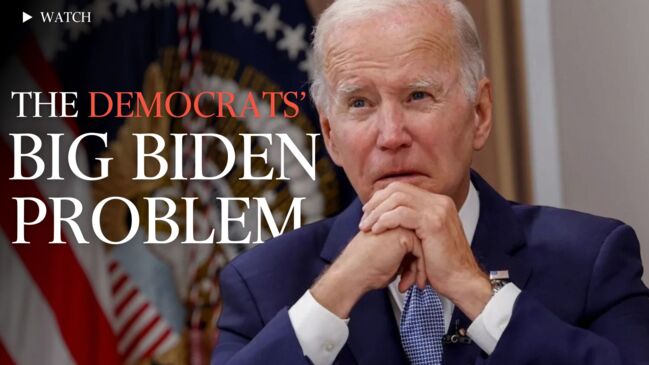
News reports about the president’s mental acuity have triggered White House rebukes and denials from Biden’s allies. The offices of Sen. Patty Murray (D., Wash.) and Rep. Gregory Meeks (D., N.Y.) alerted the White House earlier this year when The Wall Street Journal asked questions about Biden’s performance at a January meeting. The president spoke softly, paused for long periods, read from notes to make obvious points and closed his eyes, the Journal reported.
In April, Murray, the high-ranking senator from Washington state, told the Journal that she hadn’t seen a change in Biden’s acuity during years of meeting with him. “He engages in a very personal way, asking questions, making comments,” she said.
On Monday, Murray said in a statement that Biden should consider his legacy in deciding whether to remain in the race: “We need to see a much more forceful and energetic candidate on the campaign trail in the very near future in order for him to convince voters he is up to the job.” Biden’s team feels Washington is out to get him, and this us-versus-them worldview has led to what some Democrats describe as a bunker mentality, blinding the president and his aides to Biden’s political liabilities.
In an ABC News interview on Friday, Biden scoffed at questions about whether he was up to the job and said he would step aside only if the “Lord almighty” asked him to. He has also played down the opposition in his party to him staying in the race. On Monday, he dismissed what he described as pushback from “elites in the party.” People close to Biden blame a handful of advisers for putting in place a strategy that minimized the president’s age-related struggles. Those advisers include the president’s big-picture thinkers: Anita Dunn, who is responsible for the White House’s communications strategy and echoes the president’s disdain for the news media; along with Steve Ricchetti and Mike Donilon, decadeslong political counselors.
Biden allies outside the White House also pointed to lesser-known aides who have served as gatekeepers for the president, including Annie Tomasini and Anthony Bernal, close confidants of Biden and first lady Jill Biden, respectively. The White House didn’t make Tomasini, Bernal, Dunn, Ricchetti or Donilon available for comment.
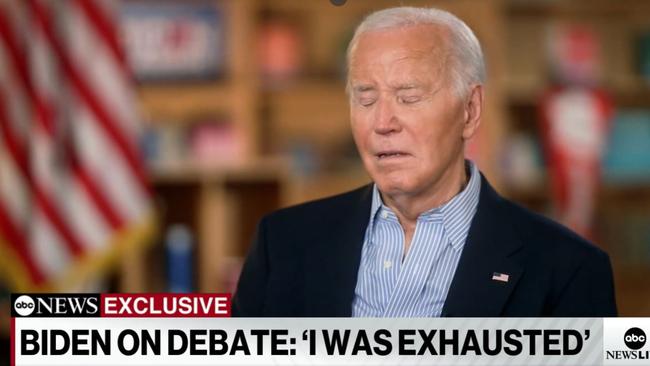
This account is based on interviews, before and after the debate, with more than two dozen current and former Biden administration officials, as well as Democratic lawmakers, major campaign donors and Democratic strategists, along with a Wall Street Journal analysis of visitor logs.
“Joe Biden is proud of the team he leads as he continues to build on the most successful record in modern American history,” White House spokesman Andrew Bates said. He disputed that Biden had been shielded from the public and that his staff acted as gatekeepers. Many of the measures the president’s team has put in place have been standard procedure in past administrations, Bates said. The president has participated in media interviews, answered questions from reporters and traveled around the U.S., he said.
The work of Tomasini, Biden’s deputy chief of staff, goes well beyond attending to the president, a White House official said. Regarding Biden and Dunn’s shared disdain for the news media, Bates said: “The President and Anita [Dunn] only feel that way about some of the press.” A number of deep-pocketed donors have directed their frustration at Hollywood mogul Jeffrey Katzenberg, a co-chair of the Biden campaign. At lunches around Los Angeles before the debate, Katzenberg -- who counseled the president to turn his age into an asset -- made the case for Biden. He told people that he saw the president regularly, and that Biden was sharp and in command, according to those who spoke with Katzenberg, whose relationship with Biden stretches back decades.
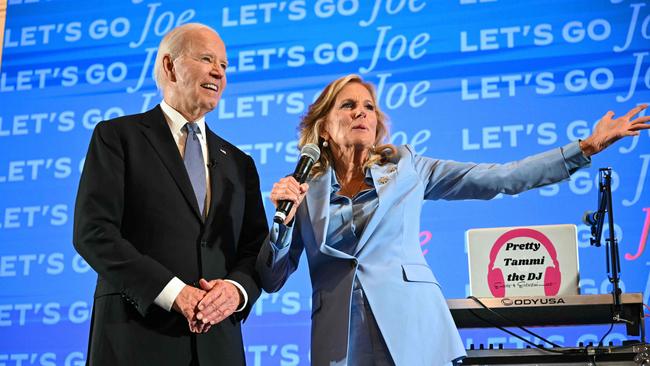
Biden has had plenty of moments in the public eye. He was widely praised for his State of the Union address in March, where he made a forceful case that the freedom of Americans was at risk in the November election. In January, he went to Blue Bell, Penn. -- not far from where George Washington rallied troops at Valley Forge -- and spoke about the high stakes of the election in a well-received address. He has made several high-profile trips, including a surprise visit to Kyiv last year and a trip to Israel days after the Hamas attack.
The president’s public appearances and his private interactions, according to people who described them, suggest that Biden has moments where he is sharp and detail-oriented. At other times, he is forgetful, stumbles over words and struggles to convey his thoughts. Those kinds of slip-ups have become more frequent, according to people who have met with the president, with many widely shared on social media.
Some who have spent time with the president after not seeing him for a while said they were surprised by how much he had slowed. Last summer, a former top Biden adviser who had met with the president told an associate the meeting was “not good” and that Biden had noticeably aged since they had last seen each other.
The president’s abysmal debate performance was a crystallizing moment for some Biden backers, who said it caused them to reassess previous interactions with the president. Another former Biden adviser said the Atlanta debate caused many people to piece together gnawing concerns about Biden’s mental acuity they had long harbored.
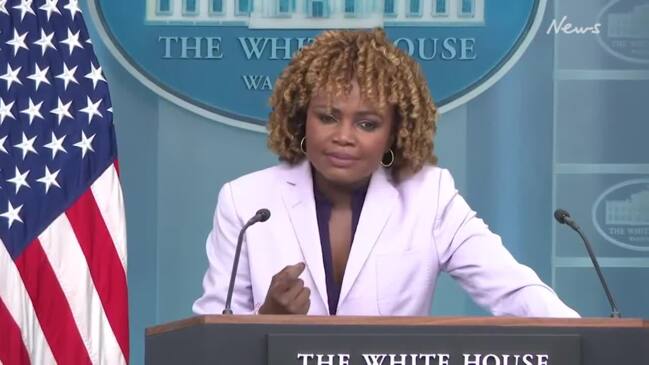
Trading places
Lawmakers in both parties say they don’t get enough face time with the president. Biden took almost a week to call Senate Majority Leader Chuck Schumer (D., N.Y.) after the debate. A White House official said the president has spoken to at least 20 lawmakers since the debate. Biden’s team refused requests by Republican House leaders to meet with the president, instead offering conversations with senior White House aides.
Biden has had fewer small meetings with lawmakers as his term has gone on, visitor logs show.
German officials, aware of Biden’s fatigue at night, sought to accommodate the president by planning a June 2022 event with German Chancellor Olaf Scholz in the early evening.
The informal event, a soiree at the Alpine resort Schloss Elmau during the Group of Seven summit, was arranged as a confidential meeting on Ukraine in a relaxed setting. Biden didn’t show, surprising the chancellor and his aides, officials said. Instead, Secretary of State Antony Blinken arrived and announced that Biden had to go to bed, according to two people who were there.
Matthew Miller, a State Department spokesman, denied that Blinken said Biden had to go to bed. “Secretary Blinken never said that or anything like it,” he said.
A U.S. official said the White House indicated early on that Biden wouldn’t attend. The official disputed the characterization that Blinken was standing in for the president. A White House official said that Biden during the summit balanced engagements with world leaders and pressing needs at home, ending one evening at 10 p.m., after an hourlong call with his team about domestic matters.
During working hours at the summit, the people who were present said Biden showed no sign of cognitive decline. Yet, they said, he appeared to be physically worn out as the days passed. U.S. aides told officials at the summit that it was due to the lack of air conditioning, according to the people, a contention the State Department disputed.
Biden salesman
Even before the Democratic primaries, some donors pressed Katzenberg on whether Biden should be the nominee, given his advanced age. Katzenberg told them that Biden was the party’s best bet to beat Donald Trump.
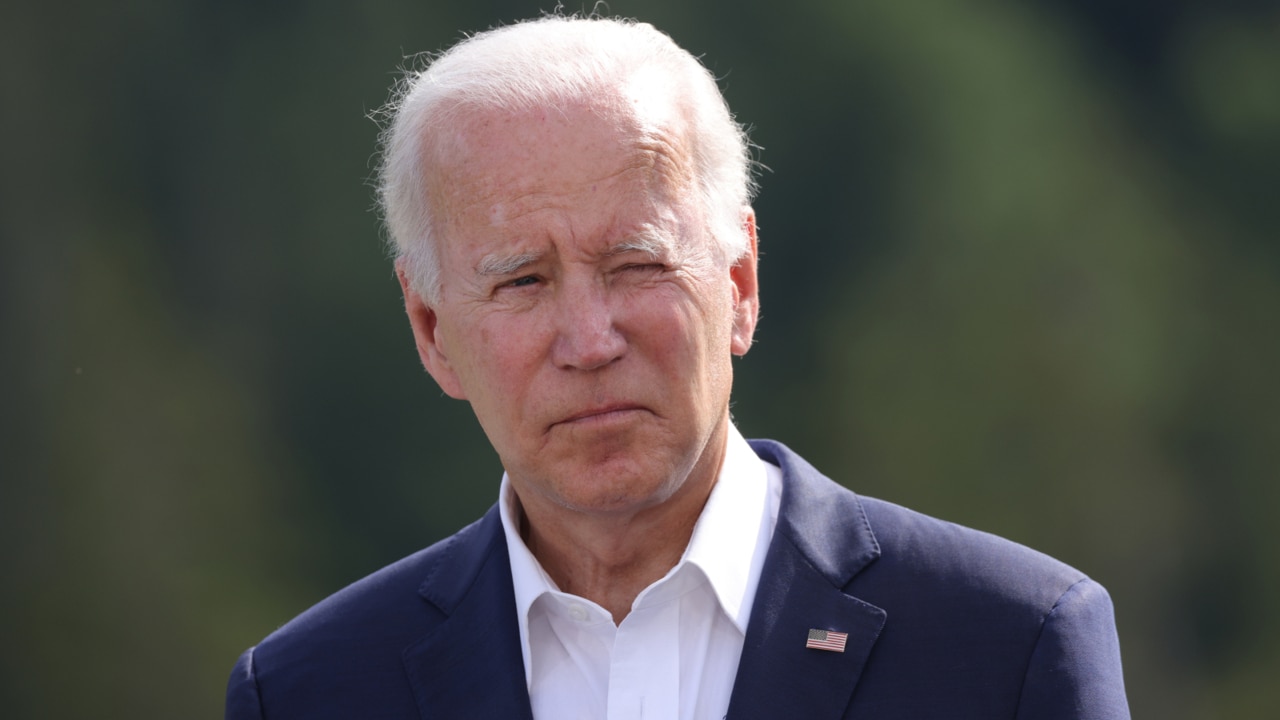
One entertainment executive who had lunch with Katzenberg around six weeks ago said he asked Katzenberg whether Biden was too incapacitated to win the election. “No. Absolutely not,” the executive recalled Katzenberg saying. “I see him, I talk to him all the time. He’s solid. The mental acuity is there.” Katzenberg had dozens of meetings at the White House from March 2023 through March 2024, visitor logs show.
At some fundraising events, the campaign allows few impromptu moments with the president, even with top donors. The campaign has long directed donors to submit their questions for the president in advance, including at an event this year in South Florida with only eight people attending, according to a donor. Biden spoke slowly and stumbled over some of his words, but he ultimately gave detailed responses , the donor said. The president seemed to have “lost a step,” the donor said, but he didn’t seem impaired.
Aides sometimes stepped in to help. At a fundraiser in New York around the time of the United Nations General Assembly last fall, Biden seemed at a loss trying to answer questions about the Middle East from people in a photo line, according to a person there. An aide whispered in Biden’s ear, the person said, and the president then answered.
During a fundraiser at the Four Seasons in New York in June 2023, Biden spoke for five to 10 minutes and then took a few questions, said attendees who bought a ticket. They were struck by how fragile he seemed. At one point, Biden couldn’t recall the word for “veteran.” The president asked the group to help him find the word, saying he wanted to refer to a person who had served in the Army or Navy.
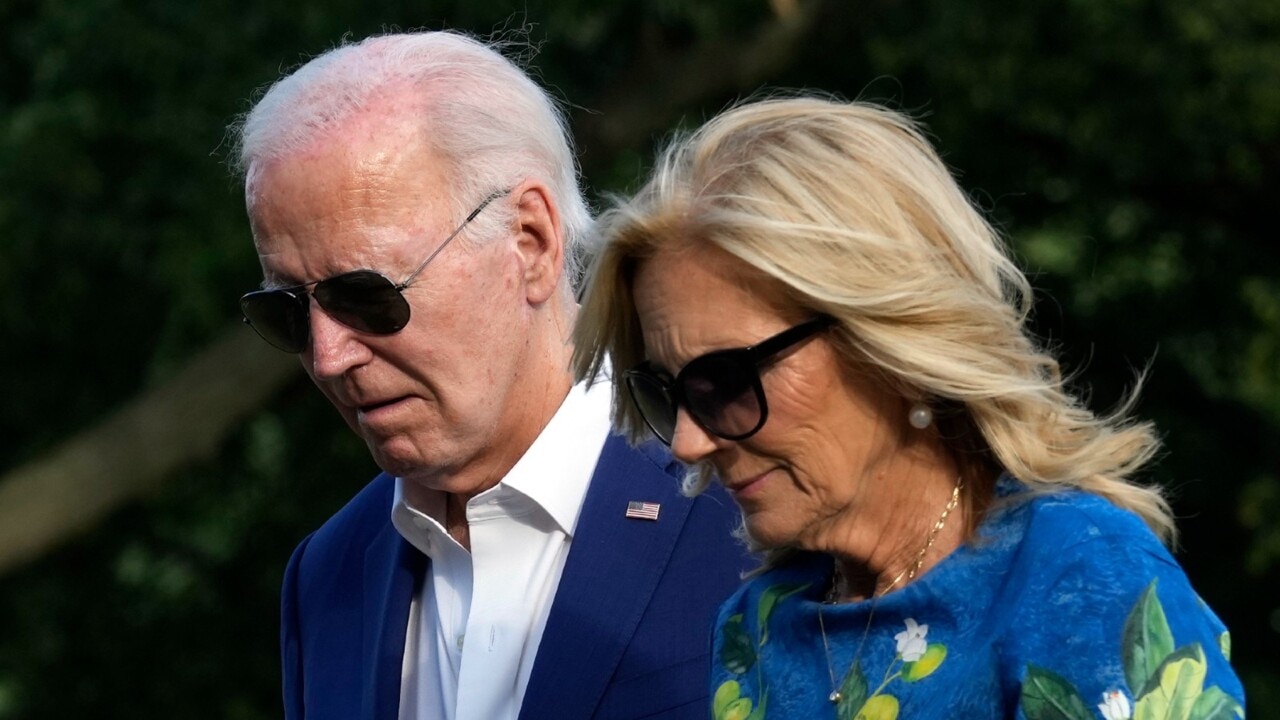
Asked about these events, Kevin Munoz, a Biden campaign spokesman, criticized reporters who used anonymous sources to recount the president’s behind-the-scenes interactions. “None of them change the facts at play this election and what this campaign will be focused on every single day: that President Biden is the most accomplished president in modern history,” he said.
High-profile Democratic lawmakers also defended the president’s mental acuity. During an interview in April, Rep. Nancy Pelosi (D., Calif.), the former House Speaker, recalled how she batted down worries from a celebrity who called her to ask, “What’s up with Joe Biden?” Pelosi said she responded by describing how well Biden had performed during a recent fundraiser in San Francisco. “He gave a great speech, no notes,” she recalled telling the celebrity. Biden, she said, recognized everyone, not needing to rely on nametags.
Pelosi has full confidence in Biden, her spokesman said Monday. Some donors said they kept their concerns quiet because they didn’t want to risk their access or influence. No one wanted to jeopardize a chance to become an ambassador or host a fundraiser, said a Los Angeles-based longtime Democratic donor.
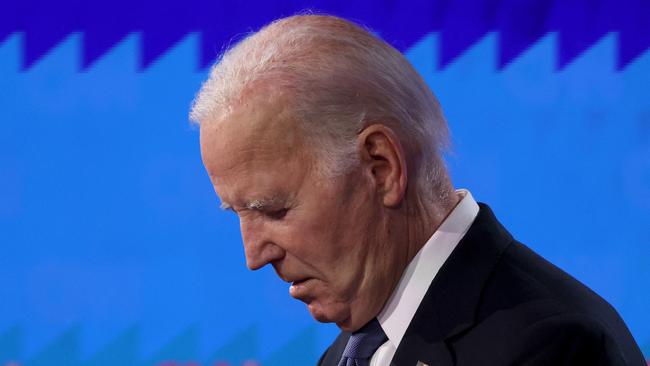
Musical exit
When Biden was a senator, he regularly spoke with reporters in the hallways of the Capitol. As vice president, he invited journalists to his house for pool parties. At the start of his presidency, Biden spoke off-the-cuff more frequently, including at fundraisers.
These days, Biden’s public appearances are brief. He occasionally answers shouted questions from reporters, but his responses are often clipped -- sometimes a “yes,” “no” or just a thumbs-up. Since the debate, his public remarks have on average lasted less than 10 minutes. His campaign has planned more unscripted interactions with voters following criticism from Democrats.
Biden has held fewer news conferences and interviews than any president at this point in their terms going back to Ronald Reagan, according to an analysis by presidential scholar Martha Joynt Kumar, whose data starts with Reagan’s presidency.
White House aides often erect barriers to keep reporters from asking Biden questions. Journalists are sometimes kept dozens or even hundreds of feet away from the president at events. White House staff often blast music so questions can’t be heard during the president’s exit.
Radio hosts who interviewed the president last week, part of an effort to reassure the public of Biden’s mental fitness, said they were provided a list of approved questions from the Biden campaign. After that was reported, the campaign decided to curtail the practice, according to a person familiar with the Biden booking operation.
When Biden holds one of his rare news conferences, White House officials often reach out to reporters whom the president might call on, in a bid to determine what questions they plan to ask. Many reporters rebuff these requests. White House aides often hold the microphone for reporters so that aides can pull it away, preventing follow-up questions.
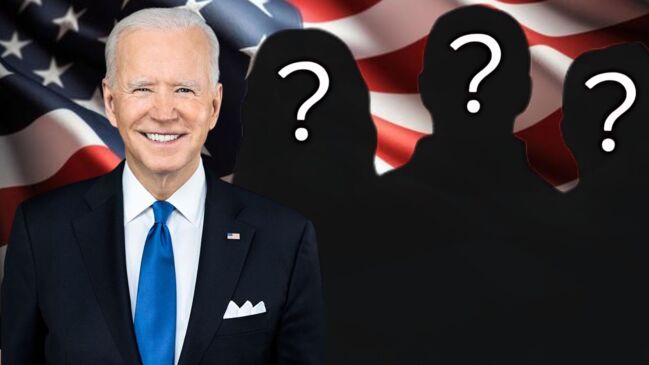
In June 2023, during an appearance at a graduation ceremony for the U.S. Air Force Academy, Biden tripped over a sandbag and fell as he walked across the stage. He got up quickly with the assistance of Secret Service agents. Biden’s fall, which was replayed on cable news for hours, raised alarms at the White House, according to people familiar with the matter.
Officials said it was a commonplace accident but nonetheless recognized the damaging political optics of Biden tumbling to the ground. In the following months, they took extra precautions to make sure he didn’t trip again. He started wearing sneakers more often for better traction, and he often used shorter stairs when boarding Air Force One.
The president, during a meeting with Democratic governors last week, spoke of the need for more sleep and suggested he avoid events that begin after 8 p.m.
That comment was met with incredulity by some governors, a person briefed on the discussion said. Some, though, were relieved that Biden at least acknowledged there was a problem, the person said.
- Rebecca Ballhaus, Erich Schwartzel, Siobhan Hughes, Bojan Pancevski and Robbie Whelan contributed to this article.
The Wall Street Journal



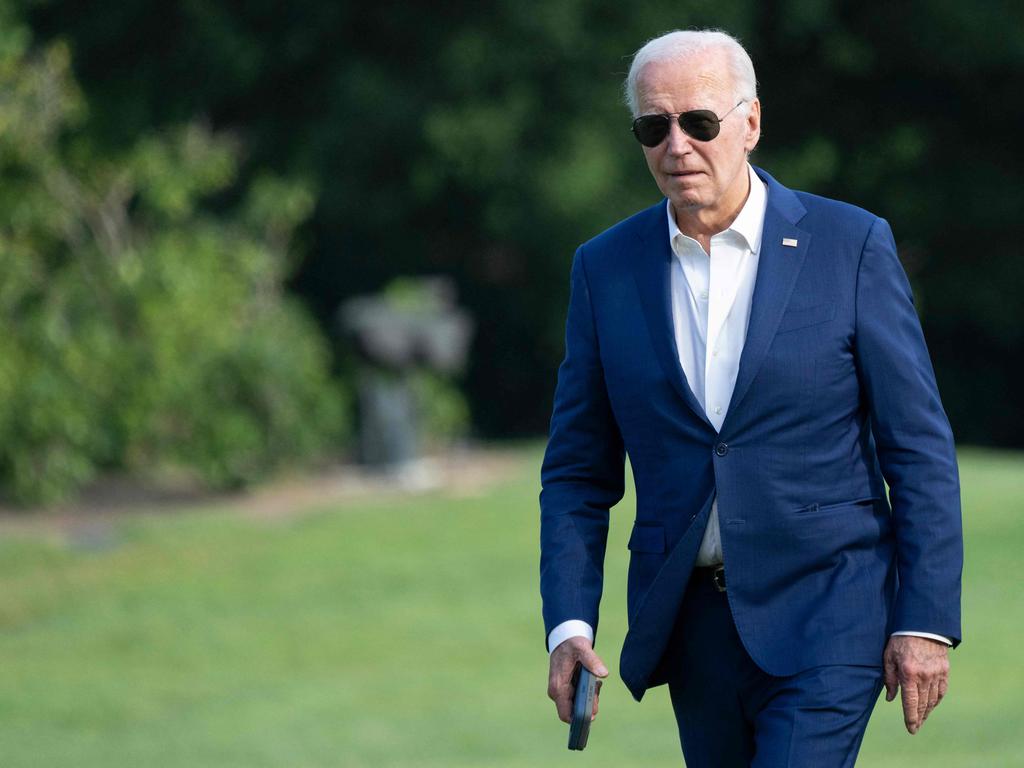
To join the conversation, please log in. Don't have an account? Register
Join the conversation, you are commenting as Logout